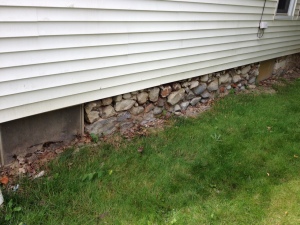I am reading through a portion of the Bible written by a guy named Jeremiah. This portion was written 700 years +/- before Jesus so a lot of what was written should be interpreted in the culture and times and circumstances of the people in the text. I was struggling to grasp the significance of certain passages in light of Jesus so I posed a few questions to my friend, Jeremiah (Mitchell)*. My email is below:
I’m reading through Jeremiah right now and one of the questions I have is to what extent is the interpretation/application solely for Israel and how much is for the church now?
Like, for instance, Chapters 30 and 31.I guess, are these promises and hopes for Israel in their captivity or is there something that I can hold on to right now? I don’t want to pull something out of the context intended by the author and the Holy Spirit but I also want to know that that portions of the OT are worth more than just as an addendum to the NT (in a gross over exaggeration). Does that make sense?
I think his responses to these questions are tight and have really helped me put Old Testament prophets in their place.
1. I wouldn’t make a distinction between Israel and the Church. At an ethnic level, sure, but that’s shallow. I think the NT makes it clear the true Israel, the true people of God, are those who put their faith in Jesus. I would argue the OT is more for us than it is for those Jews now who don’t believe in Jesus2. I would say the question is not a distinction between Israel then and the church now, but the people of God then and the people of God now who are not in their specific circumstances.3. I usually say the first most important question to ask of the text is, what did this mean for the people to whom it was written? But there’s even a question which precedes that sometimes, which is what these words meant for the people who received these words from God before they were written down? I think if we ask questions like this first, the answers we get about what these texts mean for us will likely be more accurate and treat the text with more respect. It is, from my perspective, reading the Scriptures the way the Scriptures want to be read.4. Every text is a little different and sometimes more specific questions are better for the text. However, I find a few general questions can be very helpful. Things like: What does this passage teach us about God? What does it teach us about sin? What does it say about how humans should interact with God? What does it communicate about how God interacts with his people? Are these specific promises God is making in the text ultimately promises God wants to fulfill for all of who believe in him (like peace, being his people, salvation, freedom, good plans, prosperity, safety, hope, etc)5. In terms of the prophets, so many of the promises God makes are ultimately fulfilled in Jesus. In part through his bringing of the kingdom here and now, as the firstfruits, a proof of the promise of the full harvest to come when Jesus brings the kingdom of God in full. Even though often the prophets did not know about Jesus as the fulfiller of the promises, we know Jesus came to fulfill all the law and the prophets. We are better equipped to interpret the promises of God than even the people speaking them were sometimes, when we look at them with Jesus lenses on.
I particularly like the questions posed in #4. Go back and read them and use those questions to frame your Bible study. I think you and I will both be enriched deeply by thinking through those questions.
Item #5 is a really good reminder – that this life after Jesus is only a taste of the future restoration of all things that he promises to bring. Today isn’t forever. It is only the first fruits which is a sample of produce brought to give proof of future harvest. Jesus was the first fruits and he promises to one day bring the full harvest of abundant life and love and light.
*See what I did there?







